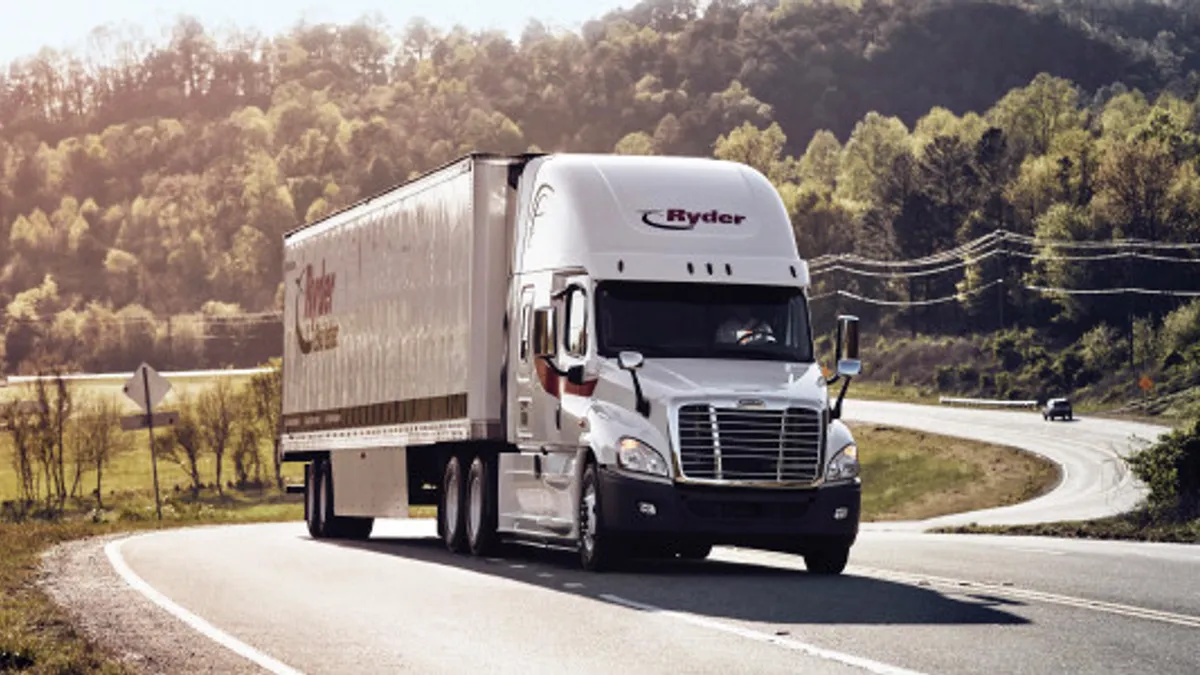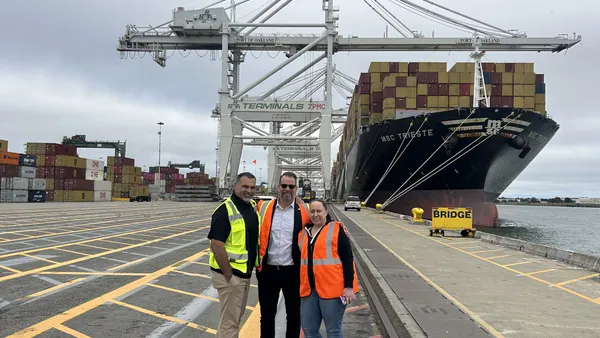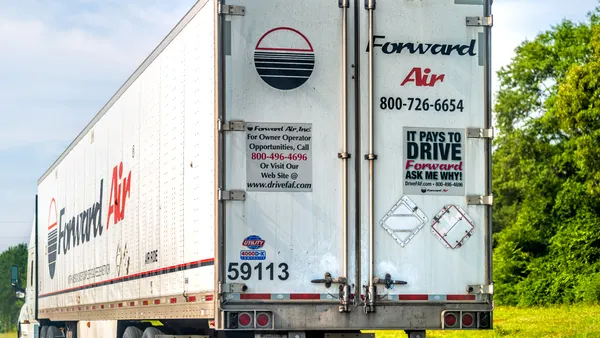Dive Brief:
- Ryder System is “almost embracing this downturn” as a chance to demonstrate to investors the strength and synergies of its combined business portfolio, Chairman and CEO Robert Sanchez said during the 2022 Stephens Annual Investment Conference last week.
- The company upsells a number of its 15,000 lease customers into its dedicated business each year, and about one-third of its supply chain operation is focused on truck freight, he said.
- “We want to prove that the model really does hold up well,” Sanchez said. “When that happens, we're expecting there’ll be some re-valuation of the business, which will include the three together.”
Dive Insight:
Ryder, which shrugged off a $4.4 billion takeover bid in June, remains in somewhat of a “show-me” period for investors, Sanchez acknowledged. The company made changes to its business model in 2019 to lower residual assumptions, increase lease rates and separate its higher-return businesses from its lower-return U.K. business.
“We’ve really done a lot to reposition the business,” he said. “When you talk to investors, a lot of people are waiting to see, ‘Let me see how this works when you go through the next used-trucks downturn.’”
Ryder won’t be immune to an economic contraction, but Sanchez has high hopes for how the business will fare in relation to the rest of the market.
The company expects 50% growth — half organic and half via acquisitions — in its supply chain business by the end of the year, and double-digit growth again next year, even if it is “maybe not as high,” Sanchez said.
Ryder expects 15%-16% growth in its dedicated business this year and is targeting growth in the high single digits for 2023.
Its lease fleet is seeing good returns and will grow by 2,000 units by the end of 2022, with another 2,000 rolling in next year, Sanchez said.
“No one’s making big moves for next year, because everybody’s planning for a slowdown,” Sanchez said. “We’re seeing it on the used truck side already. We’re not seeing it on the rental side yet. We’re going into it probably the same way — cautious, but also looking for where those opportunities are.”
Ryder is not the only trucking juggernaut that has faced pressure to spin off businesses to unlock more shareholder value. XPO Logistics spun off its truck brokerage, RXO, on Nov. 1, with executives making the case that separating its LTL and brokerage businesses would eliminate a “conglomerate discount” that was undervaluing XPO’s stock.
Ryder wants to keep its businesses together to take advantage of its operational synergies “as long as we can,” Sanchez said. The company has plenty of room on its balance sheet to deploy capital toward acquisitions and stock buybacks next year. But it isn’t opposed to future shakeups if the company isn’t meeting its potential.
“If we do not see that [value] over time, obviously, we’ll continue to look at other ways of unlocking value,” he said.













